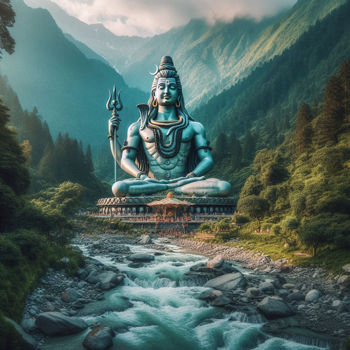



Makaravilakku is one of the most revered and significant festivals celebrated at the Sabarimala Ayyappa Temple in Kerala, India. This annual event takes place during the Makar Sankranti, marking the end of the Mandala Puja season and the beginning of the new year according to the Malayalam calendar. The festival is renowned for the grand and sacred rituals performed at the Sabarimala Temple, which is nestled in the Western Ghats and draws millions of devotees from across the country.
The Makaravilakku festival is highlighted by the appearance of the Makarajyothi, a celestial light seen on the horizon, which is considered a divine sign. Devotees believe that witnessing the Makaravilakku and the accompanying rituals bestows blessings and spiritual enlightenment. The festival is a symbol of faith, devotion, and the culmination of a rigorous pilgrimage, where devotees undertake a 41-day fast and penance before climbing the 18 holy steps to the Sabarimala shrine.

Spiritual Renewal: The puja during Makaravilakku is considered a time for spiritual cleansing and renewal. It allows devotees to reflect on their lives, seek forgiveness for past sins, and start afresh with renewed spiritual vigor.
Devotional Intensity: The puja and associated rituals are believed to intensify the devotion of the participants, bringing them closer to Lord Ayyappa and enhancing their spiritual connection.
Celebration of Divinity: The appearance of the Makarajyothi is seen as a divine manifestation, reaffirming the presence and blessings of Lord Ayyappa. The puja performed during this time is seen as an offering of thanks and reverence to the deity.
Community Bonding: The festival brings together people from different walks of life, fostering a sense of unity and shared spiritual purpose. It emphasizes the values of brotherhood and collective worship.
Spiritual Blessings: Witnessing the Makaravilakku and participating in the puja is believed to bring divine blessings, leading to prosperity, peace, and spiritual growth.
Mental and Physical Discipline: The rigorous 41-day fast and penance that precede the festival help in developing mental and physical discipline, promoting overall well-being.
Detachment from Materialism: The pilgrimage and participation in the festival encourage detachment from material desires, allowing devotees to focus on spiritual goals.
Purification of Mind and Body: The austerities and rituals performed during the festival are believed to purify both the mind and body, helping to remove negative energies and thoughts.
Enhanced Devotion: The festival experience is said to deepen one’s devotion and commitment to Lord Ayyappa, fostering a lifelong bond with the deity.
Community Harmony: The festival fosters a sense of community and togetherness, as devotees from various backgrounds come together to celebrate, transcending social and cultural barriers.
Participating in the Makaravilakku festival is more than just a religious observance; it is a journey of self-discovery, spiritual growth, and a reaffirmation of faith that leaves a lasting impact on the lives of the devotees.
Makaravilakku is a significant event during the annual pilgrimage to the Sabarimala Temple in Kerala, India. This ritual is observed on the Makara Sankranti day, typically on January 14th, and marks the culmination of the Mandala-Makaravilakku pilgrimage season. The event is deeply spiritual and involves a series of rituals. Here is a step-by-step guide to performing or participating in the Makaravilakku ritual:
Vratham (Austerity):
Irumudi Kettu:
Trek to Sabarimala:
Darshan of Lord Ayyappa:
Special Poojas:
Makara Jyothi:
Makaravilakku:
Final Offerings and Aarti:
Descending the Hills:
Irumudi Unpacking:
Ending the Vratham:
The Makaravilakku is a deeply spiritual experience for the devotees, symbolizing the victory of light over darkness and the blessings of Lord Ayyappa.